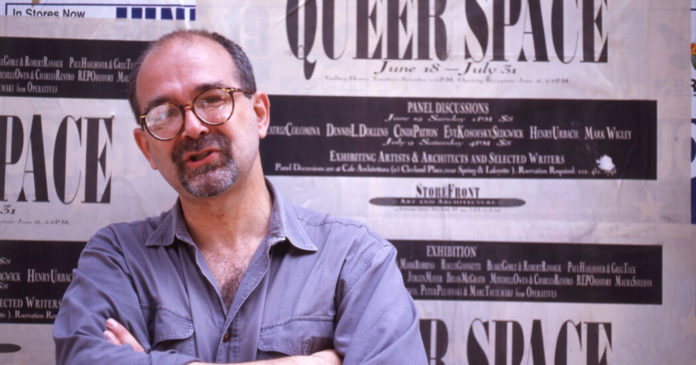
And he wrote voluminously. Many of his essays, as he put it in the introduction to “American Homo: Community and Perversity,” his 1998 book, “explore the social significance of homosexual emancipation since the end of World War II and the political reaction that it has precipitated in American public life.”
That included excavating the pre-Stonewall history of gay life, along with economic and other aspects of it. It also included examining gay pornography, how it had changed over the decades and how it had both reflected and helped to shape gay identity. His most recent essay collection, published last year, was “Sex, Society, and the Making of Pornography: The Pornographic Object of Knowledge.”
“Jeffrey Escoffier embodied the radical queer public intellectual,” Whitney Strub, an associate professor at Rutgers University-Newark whose books include “Perversion for Profit: The Politics of Pornography and the Rise of the New Right” (2010), said by email. “In particular, in such essays as ‘The Political Economy of the Closet,’ he showed how to think and write gay economic history, even when its archives had often been erased or destroyed. Later, his pioneering work on pornography called on scholars to move beyond textual analysis and think about labor, the work behind the bodies onscreen.”
Jeffrey Paul Escoffier was born on Oct. 9, 1942, in Baltimore and grew up in Manhattan and on Staten Island. His father, George, was an Army colonel, and his mother, Iris (Miller) Wendel, owned an antique shop.
“I had my first homosexual experience at 16 during the summer of 1959,” Mr. Escoffier wrote in “American Homo.” “After that, I thirsted for wild adventure. Growing up on Staten Island, realizing my queerness in its sleepy working-class communities, I viewed Greenwich Village as Shangri-La.”
Mr. Escoffier earned a bachelor’s degree at St. John’s College in Annapolis, Md., and a master’s in international affairs at Columbia University. He moved to Philadelphia in 1970 and did doctoral work in economic history at the University of Pennsylvania.








